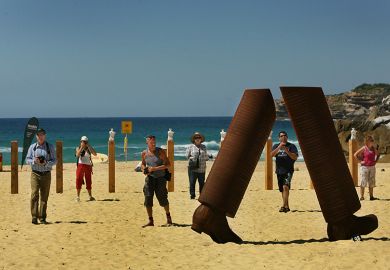Current higher education policy in England is based on “bad pub economics” and ministers have failed to learn the lessons from international developments, according to a leading academic.
Lorraine Dearden, professor of economics at the UCL Institute of Education and research fellow in education at the Institute for Fiscal Studies, lamented England’s 2012 trebling of fees to £9,000 and current plans in the Higher Education and Research Bill to ease the entry of new private providers as being driven by a desire to create competition.
“There are very, very good economic reasons why the market alone cannot be allowed to operate in higher education,” said Professor Dearden in a keynote speech at the Central for Global Higher Education’s annual conference in London on 1 March.
She cited “credit market failures” for student lending that means government has to provide loans, the fact that higher education brings “social returns” as well as private returns, “risk and uncertainty” caused by student reluctance to borrow, and “information problems” that mean prospective students cannot know the costs and benefits of their higher education until much later in life.
The government’s misguided notion that price competition between universities would occur under the £9,000 cap – when in reality all have ended up charging the maximum – was “bad pub economics”, Professor Dearden said.
The £9,000 fees policy failed to take into account the fact that income-contingent loans meant the repayment risk from higher fees was borne by government rather than universities or students, she added.
“If you want to allow a range of fees, what is important is that the higher education institutions need to share some of the risk of non-repayment,” she continued.
That would mean a system that better reflects the “true costs and benefits” of courses, Professor Dearden said. She added that there were currently “lots of economists trying to work out” how to ensure that universities “have skin in the game”.
Professor Dearden also accused Jo Johnson, the universities minister, of espousing “pub economics logic” and “bad economics” in his argument that new private providers are needed to compete with English universities to foster choice and innovation.
She argued that high-quality private providers could already enter the sector and that the gaps in accelerated or flexible provision criticised by ministers were created by the design of loans funding.
“Experience from Australia, New Zealand and the US tells us that this will end up costing the government lots of money and with little or no benefit to students as regulation of this ‘free market’ is very difficult,” she added.
In the US, for-profit colleges received their money from students up front and there had been “no incentive for them to provide good degrees”, Professor Dearden said. In the early 1990s, New Zealand “introduced uncapped places and unfettered private provider student access to government loans”, which led to rising costs, quality worries and a “complete wind back of policy”, she added.
Professor Dearden concluded: “My message is, beware of simple economics being used in the complex higher education world.”
Register to continue
Why register?
- Registration is free and only takes a moment
- Once registered, you can read 3 articles a month
- Sign up for our newsletter
Subscribe
Or subscribe for unlimited access to:
- Unlimited access to news, views, insights & reviews
- Digital editions
- Digital access to THE’s university and college rankings analysis
Already registered or a current subscriber? Login







